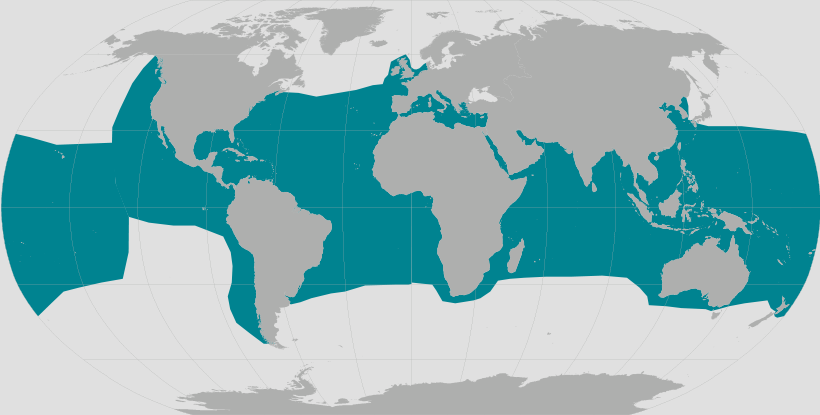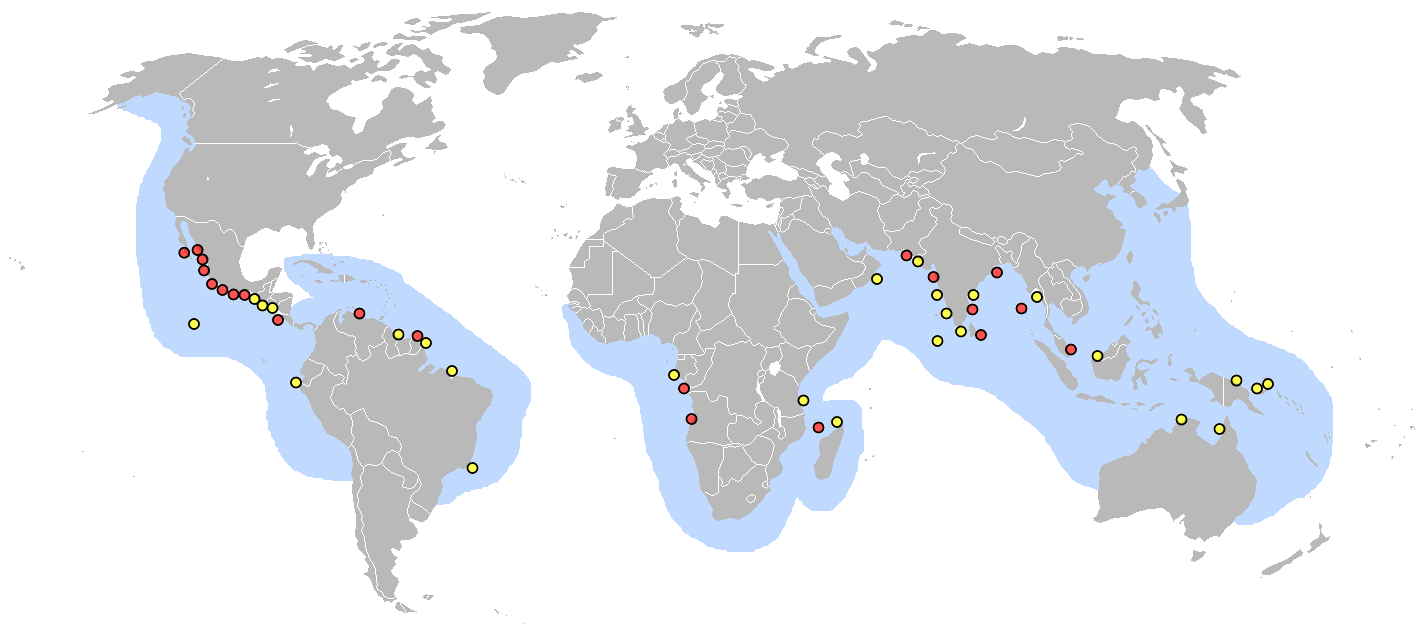The 7 Types of Sea Turtle and Where to Find Them
How many sea turtles are left on our planet? Not enough, some would say. More pragmatic minds would tell you just over 1 million animals.
This population is spread out across seven types of sea turtle.
Sea turtles really are a rare breed. Despite being found all around the world (except the arctic and antarctic regions) they are limited to a surprising finite number of species. While there are over 350 types of turtle, most of these are semi-aquatic animals found in freshwater, rivers and lakes.
But what’s the difference between these 350 species of turtle and the seven types of sea turtle?
Types of Sea Turtle: What Makes a Sea Turtle a Sea Turtle?
Sea turtles are defined by their environment.
They live in the sea and do not leave. Their only respite from the ocean is when they are born and when they go on land to lay eggs. This means male sea turtles will only be outside of the ocean when they are born. After that, they remain here until they die.
Due to the demands of the ocean, sea turtles are large. The smallest types of sea turtles are around 2 feet (60 cm) in length, however, the largest of them all, the leatherback turtle, can reach around 6.5 feet (2 metres).
Sea turtles favour the tropics, and are found in the highest numbers in warmer climates. However, these ocean wanderers have been found as far north as Alaska and Scotland, as far south as New Zealand and Argentina.
The Seven Types of Sea Turtle
Loggerhead
Length: 3.5 feet
Weight: 350 lbs
Lifespan: 65 years
Range: Global
Getting their name for their wide-set head, the loggerhead is found all around the world. While they seem to favour the warm and temperate waters of the Indian Ocean and Pacific, they’re also known to inhabit the Atlantic coast of America in good numbers and are the most numerous sea turtle sighted in the Mediterranean.
Image Credit: Wikipedia
Green Sea Turtle
Length: 4 feet
Weight: 450 lbs
Lifespan: 70 years
Range: Global
Perhaps the most iconic and recognisable type of sea turtle, the green sea turtle is the second-largest sea turtle in the world, although still small compared to the leatherback. Found around the world, with high population densities in Hawaii, Florida and Australia, they are the only sea turtles on the planet to leave the water to bask, which is essentially sunbathing.
Image Credit: NOAA
Hawksbill Sea Turtle
Length: 3.5
Weight: 150 lbs
Lifespan: 50 years
Range: Tropic belt
Hawksbill turtles are lovers of the warm tropics, known to be found on vibrant reefs and hidden amongst mangroves. They fit into these opulent environments beautifully with their colourful shell patterns, considered to be the most striking of all types of sea turtle. This stunning shell nearly proved to be the downfall of the hawksbill, as the animal was hunted relentlessly for the turtle shell trade. With the sale of turtle shells now banned, hawksbills are making a slow but steady recovery.
Image Credit: Wikipedia
Leatherback Turtle
Length: 6.5 feet
Weight: 2200 lbs
Lifespan: 30-50 years
Range: Global
One of the largest reptiles on Earth, these immense creatures can dwarf humans. Skeletons of leatherback turtles date this species back to the time of the dinosaurs, making it not only one of the largest species of reptile in the world, but also one of the longest living species on the planet. Leatherbacks are the most widely distributed type of sea turtle, able to survive almost anywhere. While you will find leatherbacks in all open oceans, they concentrate their numbers in the tropics to mate and nest.
Image Credit: Wikipedia
Olive Ridley Sea Turtle
Length: 2 feet
Weight: 110 lbs
Lifespan: 50 years
Range: Global
The most numerous turtle on the planet, by a considerable margin, there are around 800,000 olive ridley sea turtles; that’s just under 80% of all sea turtles alive today! Despite their abundance though, olive ridley turtles are still considered vulnerable, having had their population halved in the past 50 years. The second smallest type of sea turtle, they get their name for their olive-coloured shell. Found all over the world, they favour the tropics and can be found in great numbers in places like Costa Rica, Africa and India.
Image Credit: Wikipedia
Flatback Sea Turtle
Length: 3.2 feet
Weight: 200 lb
Lifespan: 100 years
Range: Australia northern coastlines
The flatback turtle, named for its smooth shell, is a unique type of sea turtle. It’s the sea turtle on the planet to live and nest exclusively along the coastline of one country, Australia. Found nowhere else on Earth, they’re surprisingly difficult to observe given how remote their habitats are.
Image Credit: Wikipedia
Kemp’s Ridley Sea Turtle
Length: 2 feet
Weight: 100 lbs
Lifespan: 30-50 years
Range: East coast of North America
Unlike its namesake, the olive ridley, Kemp’s ridley turtles are critically endangered. Their numbers were so low in the 1960s they were found to be on the brink of extinction. Numbers are recovering, but there is still a mountain to climb for the Kemp's ridley. The smallest of all sea turtles, they’re found only along the east coast of North America. While they can be found as far north as Canada, the largest population groups congregate around Mexico, where most eggs are laid.
Image Credit: NOAA
Dream of encountering sea turtles? Read our guide on how and where to swim with sea turtles!














